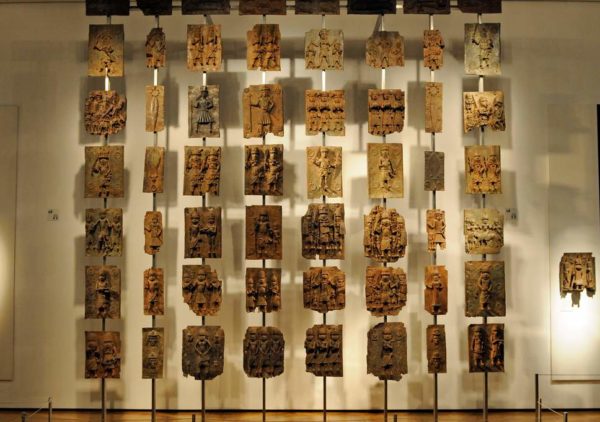After More Than 100 Years British Museum Gives Small Fraction of Stolen Royal Treasures ‘Acquired Through Force’ Back to Nigeria
A London museum will return six dozen artifacts to Nigeria stolen during a raid more than 120 years ago.
In a move experts described as “immensely significant,” the Horniman museum is the first government-fund entity to return items looted by British forces from Benin city in 1897. The museum will transfer the ownership of 72 historic objects, including brass plates known as Benin bronzes, to the Nigerian government.
The decision made by unanimous vote by the museum’s board of trustees comes four years after a group of British museums offered to let Nigeria borrow the Benin bronzes from the raid.
“The evidence is very clear that these objects were acquired through force, and external consultation supported our view that it is both moral and appropriate to return their ownership to Nigeria,” Eve Salomon, chair of the Horniman museum, said.
The move was spurred by campaign activists that added Horniman to the “Topple the Racists,” a database of sites and monuments connected to colonialism created in 2020. Museum officials consulted with London’s Nigerian community, and the Nigerian government requested the objects in January. Nigeria plans to display repatriated bronzes in the Edo Museum of West African Art, slated to open in 2025.
According to reports, about 10,000 items were taken when British troops burned Benin’s royal palace and confiscated all its treasures in 1897. The Oba, or king, had decorated the palace walls with the metal plates. Many of them were auctioned to museums all over the world. The British Museum has the largest collection of Benin objects in the world — about 900 pieces.
Oxford and Cambridge universities announced in late July that they would return more than 200 between them, according to reports. Oxford officials said they had been in talks to return the items, including bronzes, since 2017. Nigeria has been attempting to get the artifacts back since the country gained its independence in 1960. In 2018, Nigerian officials expressed an interest in borrowing them.
“What’s important about the Horniman news is the nature of the museum — their relationship to [the government’s Department for Digital, Culture, Media and Sport] in terms of their funding arrangement [and] it’s a significant London museum,” said Randy Hicks, professor of contemporary archaeology at the University of Oxford. “Up until now it had been individual objects one at a time, in stark contrast to the over 1,100 that have been committed to be returned by the German federal government.”
Hicks believes the loot was scattered between 165 sites. He hopes Horniman’s decision would motivate the British Museum to return it pieces.
“With every day of inaction and every day of seeking to hold on to these old arguments, they are just making themselves more and more irrelevant,” Hicks said. “Inaction, in this context, is an action – it’s a choice that they’re not able to tell us at the very least what they have.”

